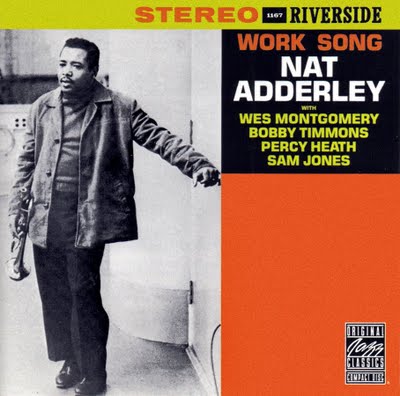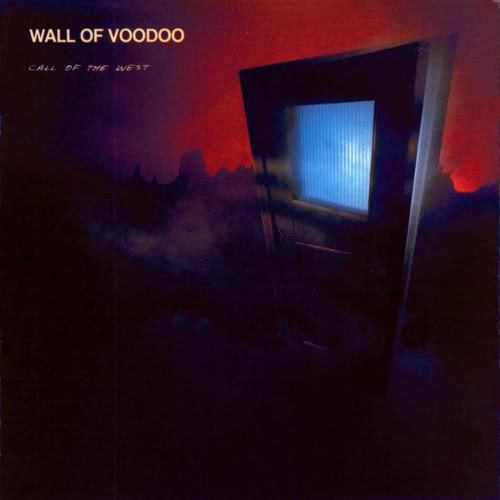Sonny Til and the Orioles 50th Anniversary
The Orioles
Along with The Ravens, Sonny Til and the Orioles were the founding fathers of rhythm and blues and the premier love-song balladeers of the late ‘40s and early ‘50s. With their smooth style, the Orioles had more of an influence on R&B groups of the next 20 years than almost any other act. While the Ravens brought prominence to black groups by doing white swing material, the Orioles were the first black group to gain national popularity by recording black songs. The Orioles became the innovators of what would later be defined as pure R&B four-part harmony. In this book They All Sang on the Corner, Phil Groia described the Orioles as having “a mellow, soft second tenor lead, a blending baritone featured as a ‘gravel gertie' second lead, a floating high first tenor and a dominant bass.†This description would easily fit some of the great 1940s gospel groups like The Soul Stirrers; it's more than likely these gospel legends inspired Til and company.
The Orioles' flight to fame began in Baltimore in 1946 after Erlington Tilghman returned from military service. Erlington (later Sonny Til) had always aspired to sing and even wrote in his high school yearbook that his aim was “to become on of the greatest singers in show business.†His girlfriend persuaded him to perform in a local amateur show; Sonny won first place two nights in a row, and began vocalizing with subsequent winners.
A group evolved that included Sonny (lead and second tenor), Alexander Sharp (first tenor), George Nelson (second lead and baritone), Johnny Reed (bass), and guitarist Tommy Gaither. Sonny named them the Vibranairs. Their harmonizing on Pennsylvania and Pitcher Streets earned them a chance to sing at the bar on that corner. Inside they met songwriter/salesclerk Deborah Chessler, who'd written a ballad, “It's Too Soon to Know.â€
Chessler became their manager, rehearsing them at her house and arranging for them to appear in New York on “Arthur Godfrey's Talent Scouts†show in 1948. They lost out to George Shearing, but Godfrey was so impressed he brought them back for his morning show. Jerry Blaine, a record distributor, signed them to his It's a Natural label that summer, changing their name to the Orioles.
On the release of “It's Too Soon to Know,†a reviewer in the September 4, 1948, issue of Billboard remarked, “New label kicks off with a fine quintet effort on a slow race ballad. Lead tenor shows fine lyric quality.†The review was historic in its noting of the Orioles' first effort and in its categorization of the single as “race music.†The song climbed to number 13 (#1 R&B); never before had a black act singing black music reached the pop top 15.
Blaine's label became Jubilee in August 1948, and the sales of “It's Too Soon to Know†were credited to that company. Their next release, “Lonely Christmas,†reached number eight on the R&B chart. Two singles later “Tell Me So†became their second R&B number one. A Billboard reviewer described it as “one of those slow easy torch ballads that lend themselves to the group's glistening note-bending style. Could be an important platter in the race mart.â€
More great ballads followed: “A Kiss and a Rose†(#12), “Forgive and Forget†(#5 R&B, 1949), and “What Are You Doing New Year's Eve†(#9, 1949); the flip side hit number five, a second charting for “Lonely Christmas,†now on its way to becoming a Christmas perennial.
Some of the group's best ballads, though selling well, never made the national R&B Top 20. These included “At Night†(that Billboard cited on April 8, 1950: “Chalk up another hit for the high-flying group, tune is a standout; group delivers one of their best jobs yetâ€) and “I Wonder When†(reviewed on June 3rd with the observation, “Group does one of their top performances here on a promising torcherâ€). The latter's flipside, a cherished collectors' item called “Moonlight,†was described in Billboard as merely an “ordinary ballad side in comparison with the standout flip job.â€
The Orioles were on top of the world, playing for top dollar on the chitlin circuit and appearing on TV shows like “The Star Night Show†with Perry Como. But at the end of 1950 their success came to a crashing halt: an auto accident killed Tommy Gaither and seriously injured George Nelson, Johnny Reed and Sonny Woods, Orioles valet and founding member of the Royals (Federal).
Ralph Williams took over guitar (he also occasionally subbed on baritone for the recovered Nelson, who was becoming unreliable). The first of their singles with Williams was “Oh Holy Night.â€
In April 1951 Jubilee issued “Pal of Mine,†the group's tribute to the sorely missed Gaithers. A number of Orioles' subsequent recordings were not up to their usual quality as the group's interest waned. It was reflected in Billboard reviews of records like “Bar Fly†(“Orioles are not very exciting on this new weeper ballad. Though the lead does an effective job – side may get spinsâ€) and “You Belong to Me†(“The group works over the pop hit in a schmaltzy style. Not their best effort, though their fans will probably take to itâ€).
But they began to come out of it with “I Miss You So,†released in early 1953, and the beautiful “I Cover the Waterfront.â€
Around this time George Nelson left and Gregory Carrol (Four Buddies, Savoy) joined with Charlie Harris, making the group a quintet. Their next single, “Crying in the Chapel,†became the standard they would always be known for. Recorded on June 30, 1953, it prompted a Billboard reviewer to write, “The Orioles have here what is undoubtedly the strongest record in the past two years, and one of the strongest R&B discs released in the past few months. The tune is the serious ditty now getting actions in the country and pop markets and the boys hand it a powerful rendition, full of feeling and spark by the fine lead singer. This could be a big, big hit!†By summer's end it was at number 11 (#1 R&B). The group followed with “In the Mission of St. Augustine,†which reached number seven R&B by October and turned out to be their last national hit. The Orioles disbanded when they found it difficult to earn top dollar in a market flooded with a new generation of groups.
Sonny, however, found a new Orioles complete and intact when he spotted a modern harmony group, the Regals, performing at the Apollo in 1954. Together, they issued a string of Jubilee sides through 1956 including excellent versions of “Runaround†and “Don't Go to Strangers.†The new members were Gerald Holman, Albert Russell, Billy Adams, and Jerry Rodriguez. They signed with Vee Jay Records in 1956 for three singles, the most popular being “Happy Till the Letter,â€
In 1962 Til formed yet another Orioles with Gerald Gregory (of THE SPANIELS), Delton McCall (from THE DREAMS) and Bill Taylor (THE CASTELLES). They recorded an LP on September 21 for Charlie Parker along with a few nicely done remakes of the group's old hits. The most interesting was an answer record to “Crying in the Chapel†called “Back to the Chapel.â€
Meanwhile, Jubilee issued a number of oldies LP, in a “battle of the groups†style, and the Orioles' early records were well represented. The LPs were popular sellers from the beginning and became cult classics. In 1966 Til formed a new Orioles with Clarence Young, Mike Robinson, and Bobby Thomas. The latter two, who had idolized the Orioles since their youth, belonged to a group named after Til's original, the Vibranairs (After Hours). They recorded one excellent LP with Sonny for RCA that year.
In 1978 the Orioles did a tribute LP to the original group, Sonny Til and the Orioles Today (Dobre), with Pepe Grant (tenor), Larry Reed (baritone), and George Holms (bass). Sonny's last recording was in 1981 on the LP Sonny Til and the Orioles Visit Manhattan Circa 1950s.
George Nelson died of an asthma attack around 1959, and Alex Sharp died in the ‘70s while singing with the Ink Spots group. Johnny Reed retired from singing, and Ralph Williams was seen with a band in St. Louis during the ‘70s. On December 9, 1981, Sonny Til died at the age of 56.
- Jay Warner















